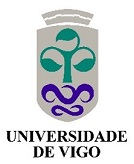Specific Agreements
Specific agreements 1: "Management, scientific coordination and risk characterizaton of imported fish"
Coordinator: Ministry of Health (MS)

The main objective of this Specific agreement is to provide the mechanisms in order to assure that the objectives of the FPA are accomplished in a global manner according to the main tasks reflected in the Framework Partnership Agreement (FPA) that includes the 4 specific agreements, together with risk characterization of CTX in fish imported to EU.
Specific agreements 2: "Epidemilogy of ciguatera poisoning in the European Union"
Coordinator: CNE-Instituto de Salud Carlos III

The main objective is to foster a proper detection and reporting of ciguatera poisoning (CP) cases and outbreaks to characterize the epidemiology of CP in Europe. To achieve the goal several tasks will be performed: awareness-raising of CP, collection of CP cases or outbreaks due to consumption of indigenous contaminated fish (from mainland Europe and Macaronesia) or fish imported from tropical CP endemic regions or travel related cases; and strengthen the investigation and reporting of CP outbreaks.
Specific agreement 3: "Modelling toxin producing microalgae and the emergence of ciguatoxins in fish in europe under climate change"

Coordinator: Institu de Recerca i Tecnologia Agroalimentaries (IRTA)
The main objective is to contribute to the prediction of toxin producing microalgae associated to ciguatera and the emergence of CTX in fish in Europe through a modelling approach, under climate change scenarios. The areas of study will be the Canary Islands and the Balearic Islands focusing on environmental data, data on the microalgae communities and fish, and on the presence and fate of toxins in the ecosystems. The data obtained will contribute with the other grants to complement the characterization of Ciguatera risk in Europe.
Specific agreement 4: “Characterization of ctx in microalgae and fish, reference materials and training”
Coordinator: Vigo University

Full characterization of the CP risk in Europe in imported and indigenous fish from European risk areas, Canary Islands and Madeira, as well as in the microalgae responsible for the contamination of the fish in hotspot areas of Madeira Archipelago. The full characterization will be carried out by applying the LC-MS methodologies developed in the first EUROCIGUA through the preparation of adequate reference materials. The provision of the required capacity building for the CTX surveillance in Europe.
















